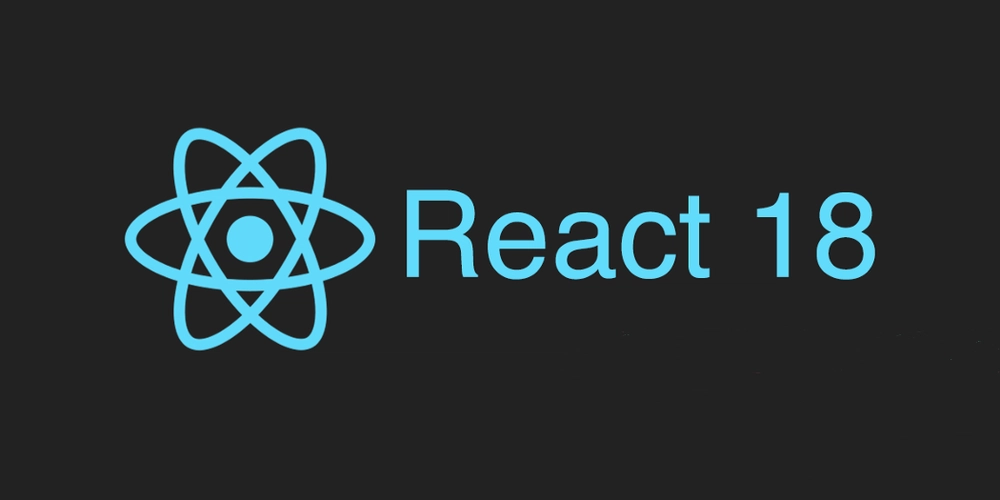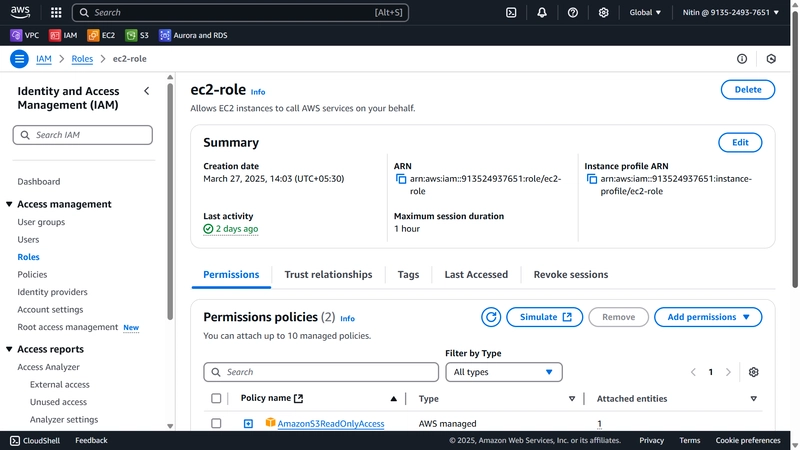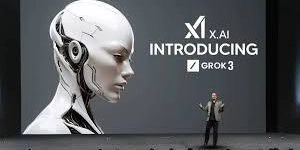Inside the Minds Building the Future: AI Agent Development Companies to Watch
Introduction The next frontier in artificial intelligence isn't just about large language models generating text or images—it's about intelligent systems that act, plan, reason, and collaborate. These capabilities are made possible through AI agents, autonomous digital entities that can perform complex tasks independently or in coordination with others. At the heart of this movement are the AI agent development companies that are designing the platforms, tools, and frameworks shaping how businesses and individuals interact with machines. As demand for autonomous AI systems, multi-agent architectures, and intelligent automation soars, a new breed of startups and tech leaders are emerging. These companies aren’t just building software—they’re reimagining the future of work, problem-solving, and enterprise operations. From agents that manage business workflows to those that simulate teams of specialists, these companies are laying the groundwork for a future where AI doesn’t just assist—it leads. Let’s explore some of the most innovative AI agent development companies currently pushing the boundaries of agentic technology and the key trends shaping this fast-moving space. What Are AI Agents, and Why Do They Matter? Before diving into the companies, it’s important to understand what AI agents are. At their core, AI agents are systems that take in context, make decisions, and act in the world—whether through APIs, software tools, or direct human interaction. Unlike traditional software, which is rule-based and static, agents can: Plan and execute multi-step tasks Utilize tools and APIs autonomously Adapt to dynamic environments Collaborate with other agents in multi-agent systems They are powered by large language models (LLMs) like GPT-4, Claude, or Gemini, and operate within agent frameworks that provide structure, memory, reasoning, and communication channels. As businesses increasingly rely on AI to automate operations, AI agents are becoming critical to delivering scalable, context-aware, and intelligent solutions. Top AI Agent Development Companies to Watch OpenAI While best known for ChatGPT, OpenAI is also pioneering tools for building intelligent agents. Their AutoGPT and function-calling APIs provide foundational elements for agentic behavior, such as reasoning, planning, and external tool use. OpenAI’s ongoing research into multi-agent alignment and coordination will likely shape the next generation of agent ecosystems. LangChain A go-to framework in the AI agent space, LangChain enables developers to build AI agents with reasoning, memory, and tool-use capabilities. Its extension, LangGraph, supports multi-agent systems and complex workflows by allowing agents to collaborate in structured, graph-based flows. LangChain is becoming a foundational tool for enterprise-grade agent development. CrewAI CrewAI focuses on creating structured agent teams, or "crews," where each agent has a defined role, task, and memory. This company is bridging the gap between autonomous AI systems and real-world professional applications, particularly in business process automation, task delegation, and report generation. Autogen (by Microsoft) Autogen is Microsoft’s open-source framework for building multi-agent AI systems It emphasizes safe communication, shared memory, and advanced coordination between agents. With Microsoft’s Azure ecosystem backing it, Autogen is becoming a powerful solution for enterprise users looking to scale intelligent automation. Langflow Langflow is a visual low-code platform for creating agentic workflows. It allows developers and non-technical users to drag-and-drop components like prompts, data sources, models, and tools, creating complex multi-agent systems without extensive coding. This democratizes access to AI agent development across teams. Reworkd (AutoGPT) This open-source project exploded in popularity by showing what autonomous agents could do when given a goal and access to tools like a web browser and file system. Reworkd continues to evolve, offering developers a playground for experimenting with autonomous AI agents capable of long-term planning and tool use. Kore.ai Known for its conversational AI capabilities, Kore.ai is pivoting toward agentic platforms for enterprises. Its recent offerings include systems that break down complex user queries into subtasks and allow human supervision of agent-generated workflows—a hybrid approach that blends trust with autonomy. Adept Adept is training AI agents to interact with software tools just like humans do—by reading, clicking, and typing. This agent-first approach could redefine AI user interfaces and make agents effective digital coworkers for any software suite. LlamaIndex Though originally a data framework, LlamaIndex has become instrumental in knowledge-based agent development. It powers retrieval-augmented generation (RAG) for AI agents, letting them access and synthesize proprietary business data from PDFs, databases, an

Introduction
The next frontier in artificial intelligence isn't just about large language models generating text or images—it's about intelligent systems that act, plan, reason, and collaborate. These capabilities are made possible through AI agents, autonomous digital entities that can perform complex tasks independently or in coordination with others. At the heart of this movement are the AI agent development companies that are designing the platforms, tools, and frameworks shaping how businesses and individuals interact with machines.
As demand for autonomous AI systems, multi-agent architectures, and intelligent automation soars, a new breed of startups and tech leaders are emerging. These companies aren’t just building software—they’re reimagining the future of work, problem-solving, and enterprise operations. From agents that manage business workflows to those that simulate teams of specialists, these companies are laying the groundwork for a future where AI doesn’t just assist—it leads.
Let’s explore some of the most innovative AI agent development companies currently pushing the boundaries of agentic technology and the key trends shaping this fast-moving space.
What Are AI Agents, and Why Do They Matter?
Before diving into the companies, it’s important to understand what AI agents are. At their core, AI agents are systems that take in context, make decisions, and act in the world—whether through APIs, software tools, or direct human interaction. Unlike traditional software, which is rule-based and static, agents can:
Plan and execute multi-step tasks
Utilize tools and APIs autonomously
Adapt to dynamic environments
Collaborate with other agents in multi-agent systems
They are powered by large language models (LLMs) like GPT-4, Claude, or Gemini, and operate within agent frameworks that provide structure, memory, reasoning, and communication channels.
As businesses increasingly rely on AI to automate operations, AI agents are becoming critical to delivering scalable, context-aware, and intelligent solutions.
Top AI Agent Development Companies to Watch
- OpenAI While best known for ChatGPT, OpenAI is also pioneering tools for building intelligent agents. Their AutoGPT and function-calling APIs provide foundational elements for agentic behavior, such as reasoning, planning, and external tool use. OpenAI’s ongoing research into multi-agent alignment and coordination will likely shape the next generation of agent ecosystems.
- LangChain A go-to framework in the AI agent space, LangChain enables developers to build AI agents with reasoning, memory, and tool-use capabilities. Its extension, LangGraph, supports multi-agent systems and complex workflows by allowing agents to collaborate in structured, graph-based flows. LangChain is becoming a foundational tool for enterprise-grade agent development.
- CrewAI CrewAI focuses on creating structured agent teams, or "crews," where each agent has a defined role, task, and memory. This company is bridging the gap between autonomous AI systems and real-world professional applications, particularly in business process automation, task delegation, and report generation.
- Autogen (by Microsoft) Autogen is Microsoft’s open-source framework for building multi-agent AI systems It emphasizes safe communication, shared memory, and advanced coordination between agents. With Microsoft’s Azure ecosystem backing it, Autogen is becoming a powerful solution for enterprise users looking to scale intelligent automation.
- Langflow Langflow is a visual low-code platform for creating agentic workflows. It allows developers and non-technical users to drag-and-drop components like prompts, data sources, models, and tools, creating complex multi-agent systems without extensive coding. This democratizes access to AI agent development across teams.
- Reworkd (AutoGPT) This open-source project exploded in popularity by showing what autonomous agents could do when given a goal and access to tools like a web browser and file system. Reworkd continues to evolve, offering developers a playground for experimenting with autonomous AI agents capable of long-term planning and tool use.
- Kore.ai Known for its conversational AI capabilities, Kore.ai is pivoting toward agentic platforms for enterprises. Its recent offerings include systems that break down complex user queries into subtasks and allow human supervision of agent-generated workflows—a hybrid approach that blends trust with autonomy.
- Adept Adept is training AI agents to interact with software tools just like humans do—by reading, clicking, and typing. This agent-first approach could redefine AI user interfaces and make agents effective digital coworkers for any software suite.
- LlamaIndex Though originally a data framework, LlamaIndex has become instrumental in knowledge-based agent development. It powers retrieval-augmented generation (RAG) for AI agents, letting them access and synthesize proprietary business data from PDFs, databases, and APIs in real time.
- Simulacra Simulacra is developing AI-powered simulations where multiple agents operate in virtual environments to test behavior, collaboration, and coordination. Their work is relevant for training, safety, and evaluating multi-agent environments.
Why These Companies Matter for the Future of AI
The companies mentioned above represent the core of the agentic AI movement—one that aims to shift AI from reactive to proactive, from tools to teammates. As businesses adopt agent frameworks to automate processes and optimize workflows, these platforms will serve as the infrastructure of the future workplace.
From automating logistics and managing calendars to building custom applications and making business decisions, the AI agents developed by these companies are becoming indispensable. They’ll not only help enterprises do more with less, but also spark new ways of working and thinking.
Conclusion
As we move beyond traditional automation, AI agent development companies are emerging as the architects of a smarter, more adaptive digital world. They are pushing the boundaries of what AI can do—enabling agents to reason, collaborate, and execute tasks across dynamic environments. This marks a shift from linear workflows to agentic ecosystems, where autonomous and semi-autonomous agents communicate and evolve in real time.
For enterprises and developers alike, understanding these companies and their innovations is critical to staying ahead. Whether you're looking to streamline operations, build intelligent apps, or explore the future of automation, the pioneers in AI agent development are the ones to watch.
As AI becomes more agentic, we’re not just building smarter tools—we’re entering an era where machines actively shape outcomes, enhance decision-making, and become vital collaborators in our businesses and lives.









































































































































































![[The AI Show Episode 144]: ChatGPT’s New Memory, Shopify CEO’s Leaked “AI First” Memo, Google Cloud Next Releases, o3 and o4-mini Coming Soon & Llama 4’s Rocky Launch](https://www.marketingaiinstitute.com/hubfs/ep%20144%20cover.png)




























































































































![[DEALS] The All-in-One Microsoft Office Pro 2019 for Windows: Lifetime License + Windows 11 Pro Bundle (89% off) & Other Deals Up To 98% Off](https://www.javacodegeeks.com/wp-content/uploads/2012/12/jcg-logo.jpg)



























![Is this too much for a modular monolith system? [closed]](https://i.sstatic.net/pYL1nsfg.png)






















































































































_Andreas_Prott_Alamy.jpg?width=1280&auto=webp&quality=80&disable=upscale#)
































































































![What features do you get with Gemini Advanced? [April 2025]](https://i0.wp.com/9to5google.com/wp-content/uploads/sites/4/2024/02/gemini-advanced-cover.jpg?resize=1200%2C628&quality=82&strip=all&ssl=1)













![Apple Shares Official Trailer for 'Long Way Home' Starring Ewan McGregor and Charley Boorman [Video]](https://www.iclarified.com/images/news/97069/97069/97069-640.jpg)
![Apple Watch Series 10 Back On Sale for $299! [Lowest Price Ever]](https://www.iclarified.com/images/news/96657/96657/96657-640.jpg)
![EU Postpones Apple App Store Fines Amid Tariff Negotiations [Report]](https://www.iclarified.com/images/news/97068/97068/97068-640.jpg)
![Apple Slips to Fifth in China's Smartphone Market with 9% Decline [Report]](https://www.iclarified.com/images/news/97065/97065/97065-640.jpg)




































































































































